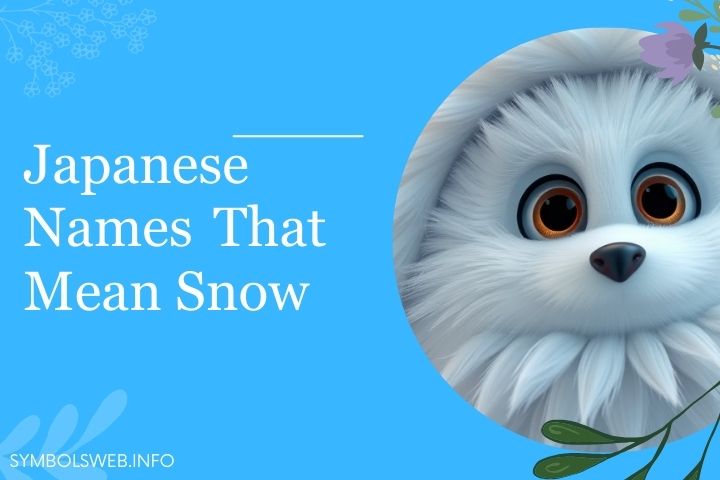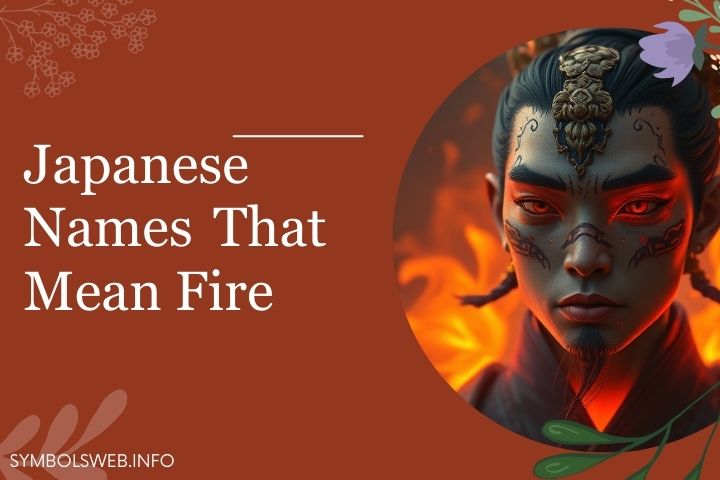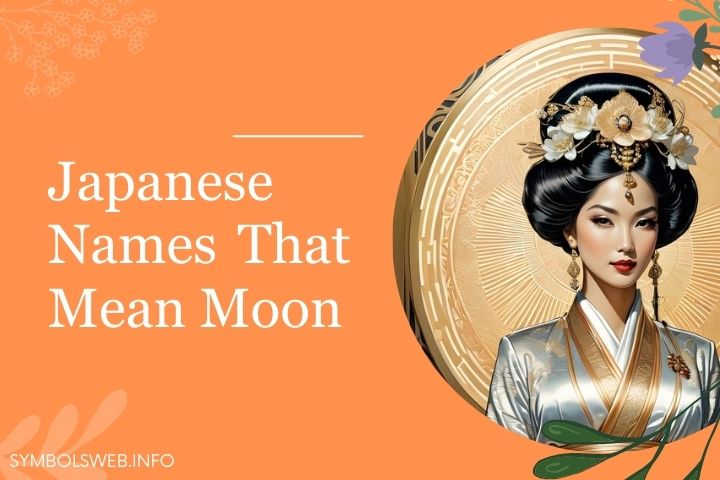When it comes to choosing a name that embodies the serene beauty and purity of snow, Japanese names offer a rich tapestry of options. These names not only capture the essence of winter’s elegance but also carry deep cultural significance. One such name is “Yuki,” which directly translates to “snow” in Japanese. It’s a popular choice for its simplicity and the tranquil imagery it evokes.
Another enchanting option is “Setsuko,” meaning “child of snow.” This name beautifully combines the concept of snow with the innocence and wonder associated with childhood, making it an ideal choice for those seeking a name that conveys both grace and warmth.
For those who appreciate more poetic expressions, consider “Fuyuko,” which means “winter child.” This name not only highlights the season but also suggests resilience and quiet strength, qualities often associated with winter’s transformative power.
Choosing a Japanese name that means snow is more than just selecting a word; it’s about embracing a piece of cultural heritage that celebrates nature’s quiet beauty. Whether you’re drawn to Yuki, Setsuko, or Fuyuko, each offers its own unique charm and connection to Japan’s rich linguistic tradition.
Japanese Names for Snow
Snow is a beautiful and calming natural phenomenon that is often associated with purity, tranquility, and transformation. In Japan, where snow is a common occurrence during the winter months, it holds a special significance in the culture and language. In fact, there are many Japanese names that are inspired by snow and its characteristics. These names can be given to boys, girls, or used as unisex names, and each has its own unique meaning and symbolism. Let’s explore some of these names and the themes they represent.
- Yuki – This is one of the most popular names that mean snow in Japanese. It is a unisex name and can be given to both boys and girls. Yuki symbolizes purity, beauty, and the transformative power of snow.
- Setsuko – This is a feminine name that means “snow child.” It represents the innocence and purity of a child, much like the untouched snowfall.
- Haruki – This is a masculine name that means “spring snow.” It symbolizes the fleeting nature of beauty and the cycle of life and death.
- Miyuki – This is a feminine name that means “beautiful snow.” It represents the delicate and ethereal qualities of snowfall.
- Noboru – This is a masculine name that means “ascend, rise.” It can be seen as a reference to the pure white snow covering the landscape and reaching towards the sky.
- Fuyuki – This is a unisex name that means “winter snow.” It embodies the cold beauty and quiet strength of the winter season.
- Aya – This is a feminine name that means “color.” It can be interpreted as the colorful transformation that snow brings to the landscape.
- Rin – This is a unisex name that means “cold, dignified.” It represents the chill and beauty of snowy weather.
- Sei – This is a unisex name that means “holy, sacred.” It symbolizes the spiritual connection that many people feel with snow and winter.
- Kaoru – This is a unisex name that means “fragrance, fragrance.” It represents the fresh, clean scent of snow in the air.
- Yukio – This masculine name means “snow boy” and signifies strength and resilience in the face of adversity, much like how the snow continues to fall and cover the ground.
- Kiyoko – A feminine name that means “pure snow.” This name represents the unblemished and flawless qualities of snow, often associated with purity and innocence.
Japanese Names That Mean Snow For Boys
Here are few Japanese Names That Mean Snow For Boys.
- Yukio (雪男) – Snow boy/man.
- Yukiatsu (雪篤) – Deep snow.
- Yukinori (雪典) – Snow rule.
- Yukihiro (雪広) – Broad snow.
- Kazuki (和雪) – Harmonious snow.
- Yukihiko (雪彦) – Snow prince.
- Yukimasa (雪正) – Righteous snow.
- Yukiharu (雪春) – Spring snow.
- Yukitaka (雪貴) – Precious snow.
- Yukikazu (雪和) – Harmonious snow.
- Yukinobu (雪信) – Trustworthy snow.
- Yukito (雪人) – Snow person.
- Yukinaga (雪永) – Eternal snow.
- Yukiya (雪矢) – Snow arrow.
- Yukihide (雪秀) – Excellent snow.
- Yukimori (雪森) – Snow forest.
- Yukisada (雪貞) – Faithful snow.

- Fuyuki (冬樹) – Winter tree.
- Yukikiyo (雪清) – Pure snow.
- Yukiyasu (雪康) – Peaceful snow.
- Yukinobu (雪信) – Trusted snow.
- Yukikazu (雪和) – Snow harmony.
- Yukihiro (雪広) – Vast snow.
- Yukitaka (雪隆) – Snow prosperity.
- Yukiya (雪弥) – Snow that reaches
- Kazuyuki (和幸) – Harmonious snow happiness.
- Yukinori (雪則) – Guideline of snow.
- Yukinaga (雪長) – Long-lasting snow.
- Yukitada (雪忠) – Loyal snow.
- Yukinobu (雪伸) – Expanding snow.
- Yukito (雪翔) – Snow flight.
- Yukimasa (雪雅) – Elegant snow.
- Yukiya (雪弥) – Snow extensive.
- Kazuyuki (和行) – Harmonious conduct.
- Yukisada (雪貞) – Consistent snow.
- Yukinobu (雪信) – Trust in snow.
- Yukimori (雪盛) – Abundant snow.
- Yukiryo (雪遼) – Snow expanse.
Japanese Names That Mean Snow For Girls
Find here few of the Japanese Names That Mean Snow For Girls.
- Yukiko (雪子) – Snow child.
- Yukina (雪菜) – Snow vegetable.
- Yukari (雪梨) – Snow pear.
- Yukiko (雪湖) – Snow lake.
- Yukina (雪奈) – Snow apple tree.
- Fuyuko (冬子) – Winter child.
- Yumiko (雪美子) – Beautiful snow child.
- Yukie (雪絵) – Snow picture.
- Yukiyo (雪代) – Generation of snow.
- Yurina (雪里奈) – Village of snow.
- Yukisa (雪佐) – Snow assistant.
- Yukika (雪花) – Snow flower.
- Yukimi (雪美) – Beautiful snow.
- Yukie (雪恵) – Blessed snow.
- Yukari (雪り) – Snow village.

- Yukino (雪乃) – Of the snow.
- Yukika (雪香) – Fragrance of snow.
- Yukiko (雪鼓) – Snow drum.
- Yukina (雪娜) – Grace of snow.
- Yukari (雪莉) – Snow jasmine.
- Yukiyo (雪代) – Era of snow.
- Yukika (雪香) – Snow fragrance.
- Yurina (雪梨奈) – Snow jasmine.
- Yukiha (雪羽) – Snow feather.
- Yukina (雪菜) – Snow herbs.
- Yukie (雪恵) – Kind snow.
- Yukari (幸雪) – Fortunate snow.
- Yukino (雪野) – Snowfield.
- Yurika (雪莉香) – Snow jasmine fragrance.
Unisex Japanese Names for Snow
If you are looking for Unisex Japanese Names for Snow, here are some ideas.
- Yuki (雪) – Snow.
- Fuyu (冬) – Winter.
- Setsu (雪) – Snow.
- Miyuki (美雪) – Beautiful snow.
- Yukina (雪那) – Snow that envelops.
- Kazuyuki (和雪) – Harmonious snow.
- Chiyuki (千雪) – Thousand snows.
- Satsuki (早雪) – Early snow.
- Yukinori (雪則) – Snow law.
- Yukihiro (雪尋) – Snow seeker.
- Yukitomo (雪友) – Snow friend.
- Yukiya (雪也) – Snow is also.
- Yukifumi (雪文) – Snow writing.
- Yukio (雪緒) – Snow thread.
- Yukimitsu (雪光) – Snow light.

- Yukitaka (雪隆) – Noble snow.
- Fuyutsugu (冬次) – Next winter.
- Fuyukaze (冬風) – Winter wind.
- Yukiharu (雪晴) – Clear snow.
- Yukiyori (雪依) – Dependent on snow.
- Yukimasa (雪優) – Superior snow.
- Yukitomo (雪知) – Knowing snow.
- Yukiya (雪矢) – Arrow of snow.
- Fuyuhiko (冬比古) – Winter prince.
- Setsuna (雪奈) – Snow apple tree.
- Miyuki (美幸) – Beautiful snow fortune.
- Chiyuki (千之雪) – Thousand snows.
- Koyuki (小雪) – Little snow.
- Setsuo (雪男) – Snow male.
FAQS
What are some Japanese names that mean snow?
There are several beautiful Japanese names associated with snow, including:
- Yuki (雪) – A common name for both boys and girls, directly translating to “snow.”
- Setsuko (雪子) – This name means “snow child” and is often used for girls.
- Yukio (雪男) – This male name combines “snow” with the character for “man” or “male.”
- Miyuki (美雪) – Meaning “beautiful snow,” this name is popular among girls.
Are these names used for both genders?
Yes, some names like Yuki are gender-neutral and can be used for both boys and girls. However, names like Setsuko and Miyuki are typically used for girls, while Yukio is generally a boy’s name.
What is the cultural significance of snow in Japanese names?
In Japan, snow is often associated with purity, beauty, and serenity. These qualities are highly valued in Japanese culture, and names that incorporate “snow” often reflect these ideals.
Can these names be used outside of Japan?
Absolutely! While these names have Japanese origins, they are beautiful and meaningful choices for anyone around the world. Just be mindful of pronunciation and cultural context when choosing a name.
Are there any names that symbolize snow indirectly?
Yes, names like Fuyuko (冬子) and Fuyumi (冬美), which mean “winter child” and “winter beauty,” respectively, indirectly symbolize snow as they refer to the winter season, during which snow is prevalent.
How do you pronounce these Japanese names?
- Yuki is pronounced as “Yoo-kee.”
- Setsuko is pronounced as “Set-soo-ko.”
- Yukio is pronounced as “Yoo-kee-oh.”
- Miyuki is pronounced as “Mee-yoo-kee.”
- Fuyuko is pronounced as “Foo-yoo-ko.”
- Fuyumi is pronounced as “Foo-yoo-mee.”
Are there any special considerations when using Japanese names?
When using Japanese names, it’s important to respect their cultural significance and ensure correct pronunciation. Additionally, understanding the kanji characters and their meanings can provide greater depth and appreciation for the name chosen.
Also Check:




